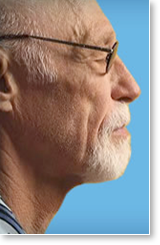by the American Heart Association
According to the report, the TM technique is the only meditation practice that has been shown through research to effectively reduce high blood pressure.
The statement also reported the finding that lower blood pressure through TM practice is associated with substantially reduced rates of death, heart attack and stroke.
The purpose of the report, entitled “Beyond Medications and Diet Alternative Approaches to Lowering Blood Pressure: A Scientific Statement From the American Heart Association,” is to inform physicians which alternative approaches to lowering blood pressure (BP) have been shown by research to be effective. The report, published on April 22, 2013, concluded that the TM technique lowers blood pressure and recommends that the TM technique be considered in clinical practice for the prevention and treatment of hypertension.
After considering meta-analyses and the latest clinical trials on different types of meditation, the report stated that while the TM technique is recommended to lower BP, there is not enough scientific evidence to recommend other meditation or relaxation techniques.
The AHA’s scientific report states:
 “Because of many negative studies or mixed results and a paucity of available trials, all other meditation techniques (including Mindfulness Based Stress Response) received a ‘Class III, no benefit, Level of Evidence C’ recommendation. Thus, other meditation techniques are not recommended in clinical practice to lower BP at this time.”
“Because of many negative studies or mixed results and a paucity of available trials, all other meditation techniques (including Mindfulness Based Stress Response) received a ‘Class III, no benefit, Level of Evidence C’ recommendation. Thus, other meditation techniques are not recommended in clinical practice to lower BP at this time.”Meta-analyses referenced in the report found that TM practice lowers blood pressure on average 5 mmHg systolic and 3 mmHg diastolic. Although by some accounts modest, researchers pointed out that for millions of people with high blood pressure, this reduction may help to bring them into a more normal range or prevent the need for hypertension medication with attendant side effects and costs.
 “We are gratified that our research demonstrating the
efficacy of TM on blood pressure is being recognized and hope that this
consensus will result in its wider use in clinical practice,” said C. Noel Bairey Merz, professor of medicine at Cedars Sinai Medical Center and principal investigator for an NIH-sponsored clinical trial on TM and cardiovascular health.
“We are gratified that our research demonstrating the
efficacy of TM on blood pressure is being recognized and hope that this
consensus will result in its wider use in clinical practice,” said C. Noel Bairey Merz, professor of medicine at Cedars Sinai Medical Center and principal investigator for an NIH-sponsored clinical trial on TM and cardiovascular health.
The American Heart Association report also recognized that Transcendental Meditation is generally considered safe and without harmful side effects. As an additional advantage, the statement noted that many of the reviewed alternative therapies, such as meditation, may provide a range of health or psychological benefits beyond BP lowering or cardiovascular risk reduction.
The AHA scientific statement concludes that alternative treatments that include the Transcendental Meditation technique are recommended for consideration in treatment plans for all individuals with blood pressure higher than 120/80 mm Hg.
*Brook RD et al., Beyond Medications and Diet: Alternative Approaches to Lowering Blood Pressure. A Scientific Statement from the American Heart Association. Hypertension, 61:00, 2013.
Read more: http://www.tm.org/blog/research/american-heart-association-informs-doctors-tm-lowers-blood-pressure/?leadsource=CRM1333












